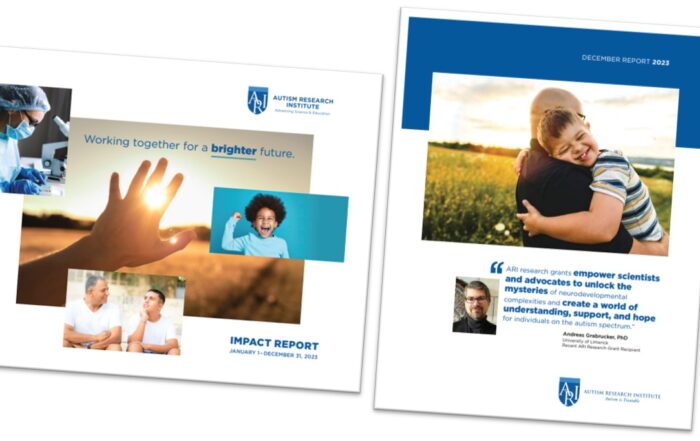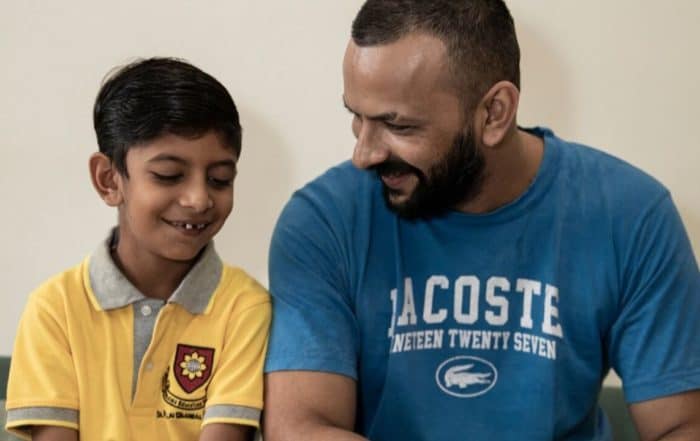ARI and Autism Research
The Autism Research Institute (ARI) was established in 1967 and is the oldest autism research organization in the world. Its founder, Dr. Bernard Rimland, was a pioneering researcher and parent advocate who fundamentally changed our understanding of autism. His first publication, Infantile Autism, argued convincingly that autism is not a result of “cold parenting” (the prevailing theory at the time) but is instead rooted in biological processes (1964). Rimland also hypothesized that autism most likely results from the complex interactions between genetics, neurology, and environmental factors (The Invisible Wall, 1968).
Throughout ARI’s history, Dr. Rimland and Dr. Edelson, the current Executive Director at ARI, have maintained pursuit of multidisciplinary research and knowledge dissemination. Rimland and Edelson produced conferences, papers, and books, coordinated think tanks, and activated discussions between scientists and physicians. They published the Autism Treatment Evaluation Checklist (ATEC) which was “… one of the first, if not the first, multidisciplinary assessment tools for autism.” Together, they began to integrate research domains, creating space for a synergistic approach to understanding autism that could expedite research on underlying causes and interventions (ARRI, 2018). Although Dr. Bernard Rimland has passed, Dr. Edelson and ARI continue pushing for collective and inclusive understandings of autism and developmental conditions.

Building a Better Tomorrow
At present, the field of autism research combines diverse disciplines and topics from over 50 years of study. However, over the last five decades, only a handful of breakthroughs have withstood the tests of time and effectively shaped our understanding and treatments of autism. Many families and practitioners continue to be disappointed with the slow progress and limitations of current intervention strategies. Further, due to a lack of well-validated treatments, health insurance coverage and government-funded educational services are minimal (ARRI, 2021).
The greatest weakness in autism research, says Dr. Edelson, is that people disagree. It has become clear that continued progress in understanding autism will not result from one “big finding” that answers all of our questions. Instead, we must shift focus to looking at each individual as a whole and not just focusing on one neurological impairment, sensory issue, genetic expression, or behavior. Only then will we be able to create effective multidisciplinary standards of care for all individuals on the autism spectrum.
Edelson posits that the future of autism research depends on the ability of all stakeholders within the autism community (including individuals on the spectrum, parents, researchers, clinicians, and therapists) to collaboratively focus on research issues “common among all areas of study.” (ARRI, 2021) In other words, researchers and advocates must learn to speak with one voice.
ARI Global Networks
Over the past 55 years and in alignment with these objectives, ARI has established and maintained networks to
- Support scientific investigation,
- Keep the healthcare community informed about evidence-based best practices, and
- Distribute up-to-date information to the entire autism community worldwide.
In 2020 and 2021, ARI launched two global networks aiming to expand collaboration and catalyze research:
Global Autism Network
The Global Autism Network connects support groups worldwide. Network members receive announcements about ARI and other autism organizations as well as information about important new research findings. In addition, they receive ARI’s quarterly science newsletter, Autism Research Review International, to distribute to their membership.
We currently have 226 support group members in 77 countries.
There is no fee to join this network.
To learn more about the Global Autism Network, please contact Nataliya Vasylevskaya at [email protected].
Global Researcher Network
The Global Researcher Network was created to provide researchers with relevant information about science-related issues. Members receive monthly updates on funding sources, links to the most current issues of major autism journals, and links to science-related articles relevant to autism research. Network members also receive a complimentary subscription to Autism Research Review International.
There is no fee to join this network.
To learn more about the Global Researcher Network, please contact Nataliya Vasylevskaya at [email protected].
“The way we move forward will depend on all of us… We hope you will join our efforts.”
~ Stephen M. Edelson, Ph.D., Executive Director, ARI
ARI’s Latest Accomplishments
Connecting investigators, professionals, parents, and autistic people worldwide is essential for effective advocacy. Throughout 2023, we continued our work offering focus on education while funding and support research on genetics, neurology, co-occurring medical
Participate in Studies
Newborn Screening Autism Risk Study - Predicting Autism Risk May Begin with a Drop of Blood The Naviaux Lab is now seeking participants for phase II of their newborn risk study. Participant
Learning Behavioral Strategies: Child and Parent Outcomes
Topics include: Behavioral interventions to support family members of children with autism spectrum disorders Mindfulness-based interventions for family members of and professionals working with individuals with autism spectrum
Editorial – Large-Scale Studies in Autism: What do They Show?
Over the past decade, many studies have documented substantial impairments in the gastrointestinal (GI), immunological, and metabolic systems of individuals with autism spectrum disorders (ASD). Although this is well known among researchers
Easing Anxiety: Medical Play
This video was developed by treatment professionals at the Johnson Center for Child Health and Development. Print and share the flyer: https://ariconference.com/webinars/support.pdf Medical visits can be stressful for anyone and individuals with






